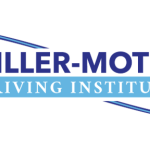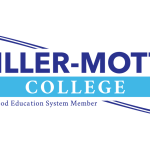Choosing a career is more than just picking a job that pays the bills. It’s about finding a role that fits your skills, interests, and goals. If you’ve considered a career in nursing, you’ve likely come across practical nursing as an option and wondered if it could be the right choice for you.
Before determining if this is the right path for you, it’s important to start by understanding the role.
The Basics of Practical Nursing
Licensed practical nurses (LPNs) provide basic medical care to patients under the supervision of registered nurses (RNs) and doctors. They often monitor patient vital signs, dress wounds, and assist patients in a variety of facilities with everyday activities like eating and bathing. These nurses earn licensure through passing the National Council Licensure Examination for Practical Nurses (NCLEX-PN).
LPNs often serve as the frontline of patient care, offering both medical assistance and emotional support. They’re compassionate, skilled professionals who bridge the communication gap between patients, their families, and medical staff.
For more details on what practical nurses do and their responsibilities, check out our previous post What are Licensed Practical Nurses.
Now that you have a general understanding of what practical nurses do, here are some questions to consider when deciding whether or not this is the right path for you.
What are Your Career Goals?
Practical Nursing programs take about a year to complete, which can offer you a relatively quick and affordable pathway into nursing. Even if you haven’t figured out your long-term goals, Practical Nursing programs can help you build a strong, flexible skill set that can be expanded upon at any point throughout your career.
If you’re looking for a long-term career in healthcare, practical nursing can be a great stepping stone to other roles such as registered nurse (RN) or even nurse practitioner (NP). Many schools offer programs that can help ease your transition from a practical nurse to a registered nurse if you choose to pursue that pathway. However, if you’re simply seeking employment in the medical field without committing to extensive education and training, practical nursing may also be a good option.
Even if you’re unsure where you want to take your nursing career, a Practical Nursing program can help you determine if starting as a practical nurse aligns with your aspirations.
Do You Want to Help Improve the Lives of Others?
One of the most rewarding aspects of a nursing career is the opportunity to make a significant impact on patients’ lives. Practical nurses serve as a regular point of contact for patients during their treatment, and they play a crucial role in providing comfort and support to individuals who are ill, injured, recovering, and more. As such, it’s important for them to be empathic, compassionate, and clear communicators with a desire to help others.
Additionally, practical nurses are detailed and adaptable. They often have multiple patients under their care at once and must keep track of important information such as medication dosages, vital signs, and changes in patient condition. If a patient’s condition turns for the worse, they should be able to secure the appropriate aid and assist in helping stabilize their condition.
Practical nurses often serve as a liaison between patients, their families, and medical staff. They regularly provide updates on patient progress and answer or direct any concerns or questions a patient or their family may have to the appropriate party. This communication is important in ensuring that patients receive the best possible care and that their loved ones feel informed and supported.
Think about the kind of impact you want to leave on the world. Do you want to be someone who helps others in their most vulnerable moments? Do you find satisfaction in offering comfort and care? If so, practical nursing may be an excellent fit for you.
Do You Value Opportunities for Growth and Career Advancement?
Practical nursing is not a static career path. It can branch off into related pathways and offer numerous opportunities for growth and advancement. Many LPNs choose to specialize in areas such as geriatrics, pediatrics, or surgical nursing. Choosing a specialty allows you to focus on the areas of healthcare that interest you the most.
Additionally, many practical nurses further their education by pursuing advanced degrees. Transitioning from LPN to RN opens up more specialized roles and higher earning potential. Schools like Miller-Motte College offer programs designed to make this transition smooth and achievable.
Practical Nursing Offers Chances to Explore Different Specialties
One of the unique benefits of a career in practical nursing is the ability to explore various specialties within the healthcare field. Whether you’re interested in working with children, the elderly, or in surgical settings, there’s a place for you.
Practical Nursing programs often expose nursing students to a wide range of specialties and allow them to gain practical experience through hands-on learning opportunities. This exposure can help you determine which areas of healthcare you’re most passionate about and pave the way for future career advancement. This hands-on experience is invaluable in helping you determine which areas of nursing you feel most passionate about.
Upon successful program completion, you may be eligible to sit for the NCLEX-PN exam and pursue a career as a Licensed Practical Nurse. With small class sizes, industry-experienced instructors, and career services to help prepare you for the workforce, Miller-Motte provides a supportive environment for your practical nursing education.
Next Steps
Deciding if practical nursing is the right career path involves self-reflection and consideration of various factors. Evaluate your career goals, consider the impact you want to make, and think about the opportunities for growth and specialization. Practical nursing offers a rewarding and dynamic career that could align well with your aspirations.
Information within this blog is for general information purposes only. Miller-Motte does not assume or guarantee certification/licensures, specific job/career positions, income earning potential or salary expectations based on the programs offered at Miller-Motte. Career and program information statements in this blog do not guarantee that programs or other information mentioned are offered at Miller-Motte.




